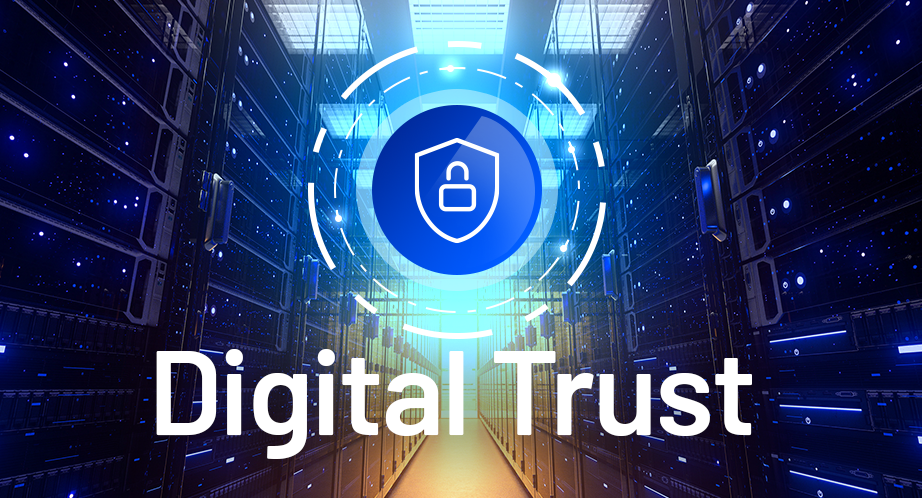As organizations accelerate their adoption of artificial intelligence, cloud infrastructure, and data-driven decision-making, one factor is emerging as the ultimate differentiator: digital trust. In a world fueled by algorithms and interconnected systems, customers, employees, and partners want one thing above all else—confidence that their data, identity, and digital experiences are secure, transparent, and ethically managed.
Companies often talk about innovation, disruption, and speed. But none of these matter if people don’t trust the technology behind them. Digital trust is no longer a technical issue—it’s a strategic pillar that will shape market leaders for years to come.
1. Customers Reward Companies They Trust
Consumers are more informed—and more cautious—than ever. They demand clarity about how their data is used and expect companies to take responsibility for protecting it. When digital trust is high, customers:
- share information more willingly
- engage more deeply with digital services
- adopt new technology faster
- stay loyal even when competitors offer lower prices
Conversely, a single breach or misuse of data can destroy years of brand equity. Trust isn’t just a legal obligation—it’s a revenue generator.
Roudantion Key:
- producthunt.com
- ameba.jp
- linktr.ee
- justpaste.it
- hulkshare.com
- deviantart.com
- myanimelist.net
- artstation.com
- sketchfab.com
- archdaily.com
2. Cybersecurity Is No Longer Enough
Many organizations still treat cybersecurity as a checklist: firewalls, encryption, access controls. These are essential but insufficient. True digital trust requires a broader commitment:
- ethical data governance
- transparent algorithms
- responsible AI practices
- user-centric privacy controls
- continuous monitoring and accountability
Customers and regulators want proof that technology is used to empower, not exploit. Companies that lead in digital trust go beyond compliance—they set new industry standards.
3. Digital Trust Drives Innovation, Not the Other Way Around
Surprisingly, organizations with strong trust frameworks often innovate faster. Why? Because internal and external stakeholders are more willing to experiment when they believe the processes are safe and transparent.
Teams that trust their tools make bolder decisions. Customers who trust a brand are more likely to try new digital products. Partners expand collaboration when they know data is used responsibly.
Innovation doesn’t create trust. Trust creates the freedom to innovate.
4. Regulation Is Rising — and Leaders Are Preparing Now
Governments around the world are ramping up regulations on AI, privacy, digital identity, and data rights. Companies that react only when regulations arrive will face costly delays, reputational damage, and operational disruptions.
Building strong digital trust systems today ensures organizations stay ahead of:
- AI transparency laws
- data sovereignty requirements
- cyber resilience standards
- global privacy frameworks
Being proactive doesn’t just reduce risk—it creates a competitive advantage.
5. The Talent Market Favors Trustworthy Employers
Employees want to work for organizations that handle data ethically. Tech workers, especially those in cybersecurity and AI, are particularly selective.
High digital trust environments:
- attract top-tier technical talent
- improve retention among digital teams
- foster a culture of accountability
- reduce internal security incidents
- support healthier, more transparent workflows
The most innovative minds want to build technology they can be proud of.
6. Trust Is Now a Core Business Metric
Leading companies are integrating trust into measurable KPIs:
- trust scores
- data ethics audits
- customer transparency ratings
- AI fairness evaluations
- secure development lifecycle reports
Boards are asking harder questions, investing in trust infrastructure, and expecting executives to treat digital trust as seriously as revenue, compliance, and risk.
In the coming years, stakeholders will judge companies not just by their financial results—but by the integrity of their digital operations.
Conclusion: Trust Is the New Currency of the Digital Economy
The organizations that will thrive in the next decade are not merely the ones with the fastest technology or the largest datasets—they are the ones that earn and preserve the trust of the people they serve.
Digital trust is the foundation on which all modern innovation stands. Companies that invest in it today will emerge as leaders tomorrow, shaping an economy where technology enhances human experience instead of undermining it.
 WhatsApp Us Now
WhatsApp Us Now








